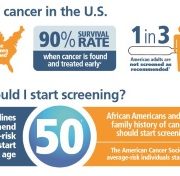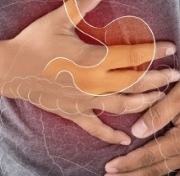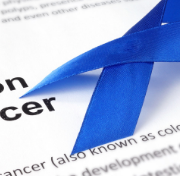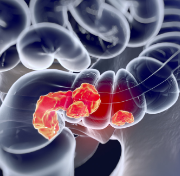Hereditary Diffuse Gastric Cancer: What You Need to Know
HDGC, or Hereditary Diffuse Gastric Cancer, is an inherited condition that increases your risk of stomach cancer. Here’s what you need to know about the condition.
What is Hereditary Diffuse Gastric Cancer?
Hereditary Diffuse Gastric Cancer syndrome is passed down genetically. This condition causes signet-ring shaped cells to grow on the stomach wall. It can spread throughout the stomach, and it does not usually cause a mass. As a result, it is difficult to diagnose early on before symptoms occur with typical testing like an Upper Endoscopy. Later-stage symptoms of HDGC that can indicate the condition include weight loss, loss of appetite, vomiting, nausea, trouble swallowing, and stomach pain.
Only around 1-3% of all stomach cancers are HDGC, so this is a rare condition. It puts you at a higher risk of stomach cancer and lobular breast cancer. In particular, there is a higher risk of diffuse gastric cancer for people with the syndrome. Diffuse gastric cancer is a type of stomach cancer that tends to affect most of the stomach. Somewhere around 20% of stomach cancers are of this type.
Cancer risk for people in families carrying an HDGC gene is high. The risk of developing stomach cancer by age 80 is 67% for men and 83% for women. The lifetime risk for women with HDGC developing lobular breast cancer is around 20-40%.
Diagnosis
People with a family history of HDGC can receive genetic testing to identify gene mutations associated with the condition. There is no single gene mutation that indicates HDGC most of the time. In fact, in families with a strong history of diffuse gastric cancer, the most common gene mutation (CDH1) for this condition only accounts for around 30-50% of cases. In all cases of gastric cancers, CDH1 mutation only cause around 1-3% of cases. So, there are a particular set of circumstances that dictate whether genetic testing should be pursued. Family history has to be taken into account. The guidelines for testing for a CDH1 may include:
- A diffuse gastric cancer diagnosis before age 35
- A diagnosis of both diffuse gastric and lobular breast cancer
- Over two cases of diffuse gastric cancer in a family
- Multiple cases of diffuse gastric cancer in a family, with one or more diagnoses occurring before age 50
Reducing Cancer Risk
People with an HDGC diagnosis or confirmed CDH1 gene mutation have a few treatment options. Unfortunately, as alluded to earlier, early screening for HDGC is very difficult since the diffuse cancer involved is hard to detect. People with a CDH1 mutation may want to consider getting their stomach removed through a prophylactic total gastrectomy, as this is the only proven way to completely prevent diffuse gastric cancer. This is a significant surgery with long-term side effects, so you should discuss the option thoroughly with your doctor. If you do not want to pursue the surgery, intensive surveillance is another option. This involves an annual EGD (Esophagogastroduodenoscopy) with multiple mucosal biopsies. Additionally, women at risk of HDGC should consider early breast cancer screening starting at age 30. They may also want to consider biannual clinical breast examinations, monthly self-examinations, and frequent breast imaging tests.
Our experienced team at GHP has years of experience screening for and treating conditions including HDGC. We can help establish the best plan of care for your situation. Contact any of our office locations to learn about the options we offer and schedule an appointment today.













